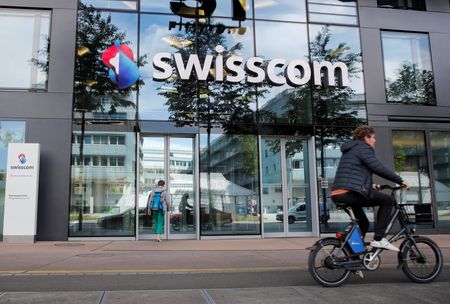(Reuters) -Britain’s FTSE 100 touched a more than one-month low on Friday and logged its sharpest drop since October 2023 for a week filled with a raft of central bank policy decisions.
The FTSE 100 dropped 0.3%, hitting its lowest since Nov. 13, though the mid-cap FTSE 250 was up 0.3%, after hitting a near one-month low earlier in the day.
Financial companies were the biggest weights on the benchmark index, with banks off 0.5% and non-life insurers down 0.7%. Energy companies lost 0.3%, tracking oil prices that fell on demand growth concerns. [O/R]
Real estate investment trusts rose 1.2% to lead sectoral gains, followed by precious metal miners after the bullion’s price rose over 1%. [GOL/]
British equities started the day on a weaker note, tracking losses in their European peers that got knocked down by U.S. President-elect Donald Trump’s comments about potential tariffs on the European Union and fears of a U.S. government shutdown after a Trump-backed spending bill failed in the House of Representatives.
However, a benign U.S. inflation reading and a weaker-than-expected rise in domestic retail sales in November helped the benchmark index pare declines through the day.
Also providing some comfort was a smaller-than-expected budget deficit, giving a slight boost to finance minister Rachel Reeves, who has been under pressure following her budget announcement in October.
A hawkish Federal Reserve outlook had rocked global financial markets earlier this week and an interest rate hold by the Bank of England pushed Britain’s main indexes to end the week lower.
Among stocks, water utility companies Severn Trent and United Utilities were the top decliners on the FTSE 100, down 2.3% and 1.7% respectively, a day after climbing on news of a rise in water bills.
London-listed shares of Carnival were up 3.6% after the cruise ship operator forecast strong bookings for 2025.
(Reporting by Ankika Biswas and Sukriti Gupta in Bengaluru; Editing by Tasim Zahid and Alex Richardson)











